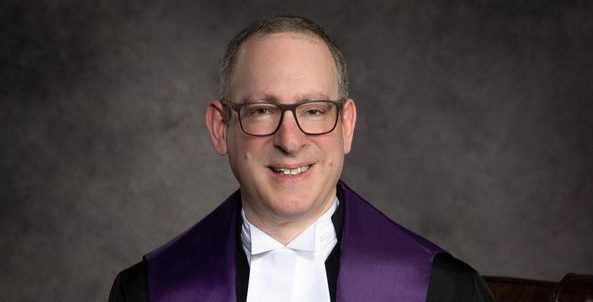(Editor’s note: This is a corrected version of the article which originally portrayed Justice David Spiro as “cleared” by the Canadian Judicial Council. The CJN regrets the error.)
A judge who allegedly interfered with the University of Toronto’s decision not to hire a scholar who has been highly critical of Israel “made serious mistakes” but the errors “were not serious enough to warrant a recommendation for his removal from office,” the Canadian Judicial Council has decided.
In a decision released Friday, May 21, a five-person review panel of the council ruled Justice David Spiro erred when he told a university official that hiring Valentina Azarova would hurt UofT’s reputation and harm fundraising efforts.
Spiro, a Tax Court of Canada judge, was approached in September last year by an official of the Centre for Israel and Jewish Affairs and asked to “relay” concerns about the imminent appointment of Azarova as director of the law school’s International Human Rights Program.
“Justice Spiro specifically declined to approach the Dean of the Faculty as he found it to be inappropriate,” the review panel said in its decision. Rather than a direct approach to the law school dean, however, Spiro used a previously arranged call with a university official and friend to voice concern about the appointment.
Spiro was a director of CIJA before his appointment to the bench.
The review panel noted that Spiro expressed serious remorse about his actions.
In complaints filed with the Canadian Judicial Council, the disciplinary body for judges, it was argued that Spiro’s action “was alleged to have put the integrity and impartiality of the Tax Court of Canada in jeopardy and cause any party or lawyer before the Court who is Palestinian, Arab, or Muslim to reasonably fear bias.”
After reviewing the entire affair, however, panel chair Chief Justice Robert Bauman ruled those fears were unfounded.
“The fear of bias on the part of Justice Spiro is based on misinformation and speculation that is inaccurate. Further, the Panel observed that any fear of bias in the future is not well-founded and cannot form the basis for directing the constitution of an Inquiry Committee.”
The review panel found Spiro was “voicing his concerns about the potential impact of the appointment …. as opposed to actively campaigning or lobbying against the appointment.”
The judge’s action was driven by his long history of active support for UofT and its law school and his concern the institution had not done its due diligence on Azarova.
“Throughout the years and before his appointment to the judiciary, Justice Spiro had been a very engaged alumnus who supported the Faculty financially and professionally. For the Review Panel, it was this background, as distinct from the judge’s judicial position, that prompted Justice Spiro’s discussion with the official from the University,” the decision said.
“The Review Panel concluded that nothing in the career of Justice Spiro or his work supports the suggestion of perceived bias on his part against Palestinian, Arab or Muslim interests.”
The panel did find that “it was an error for Justice Spiro to raise such concerns in the manner he did.”
In a report commissioned by the university and released March 29, retired Supreme Court Justice Thomas Cromwell said immigration problems, not Spiro’s remarks, ended the discussion about hiring Azarova.
The Canadian Association of University Teachers, which represents 75,000 university teachers across the country has called the Azarova decision an attack on academic freedom and passed a motion of censure against UofT. The motion asks all members not to accept appointments or speaking engagements at UofT and not to attend conferences there until Azarova is immediately hired.
Several speakers have cancelled engagements at the school. Amnesty International, which had a partnership with the law school, has also severed ties with the university.
